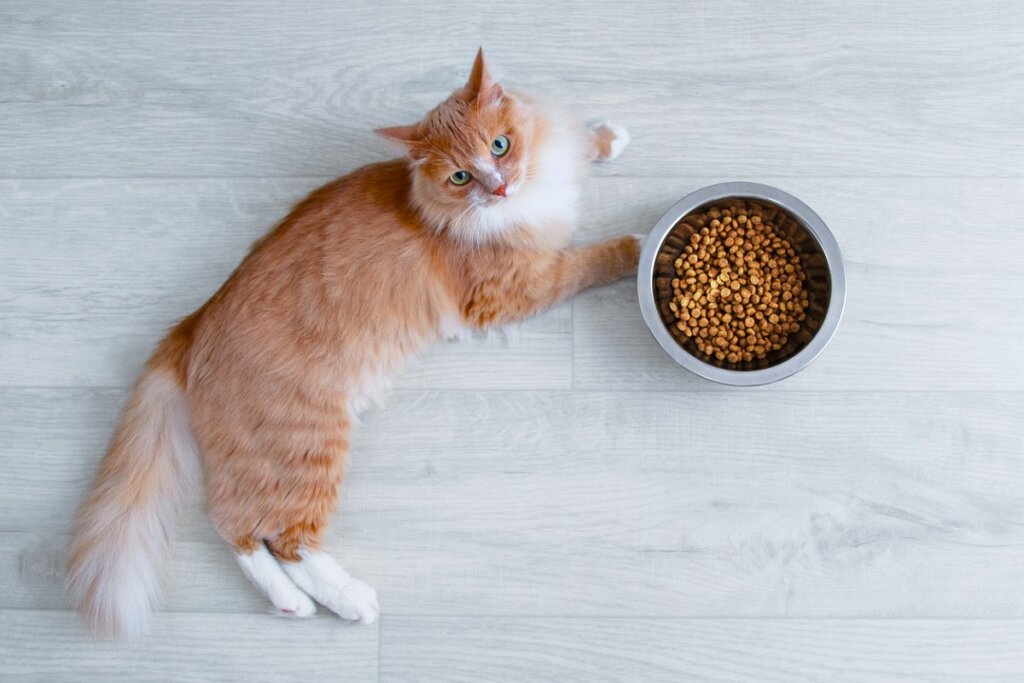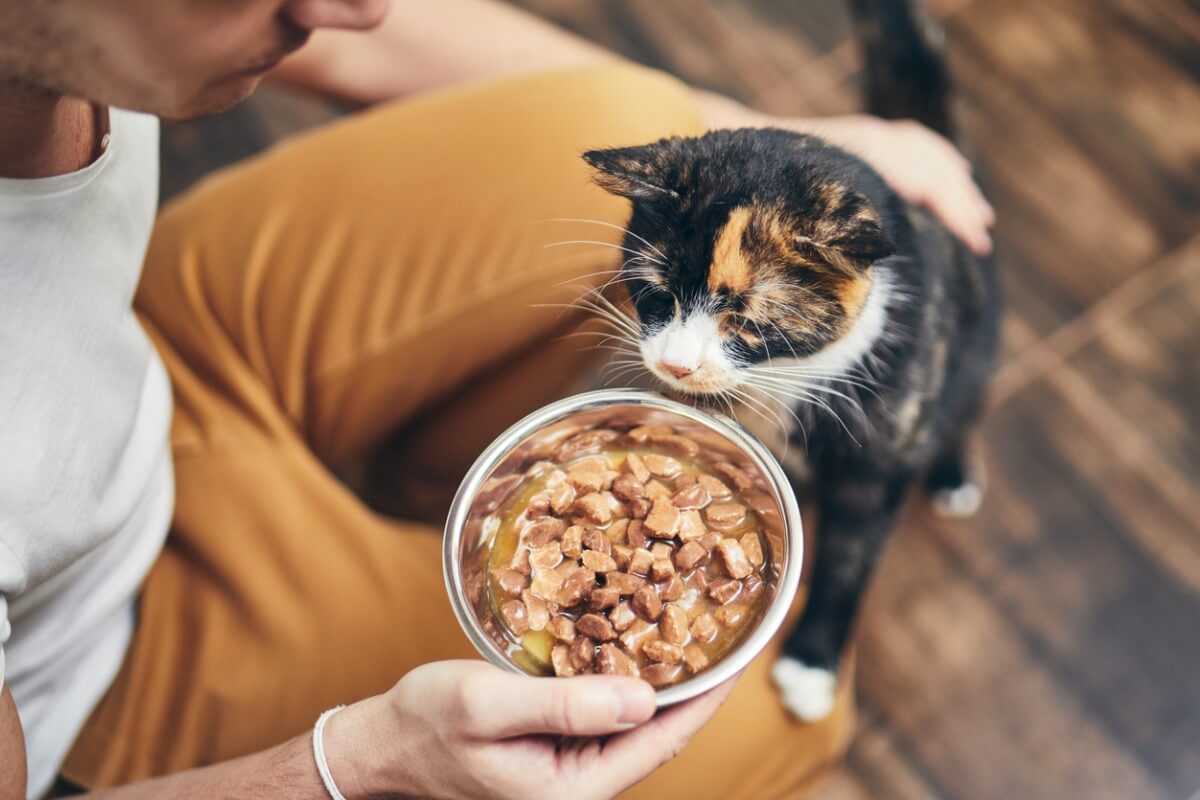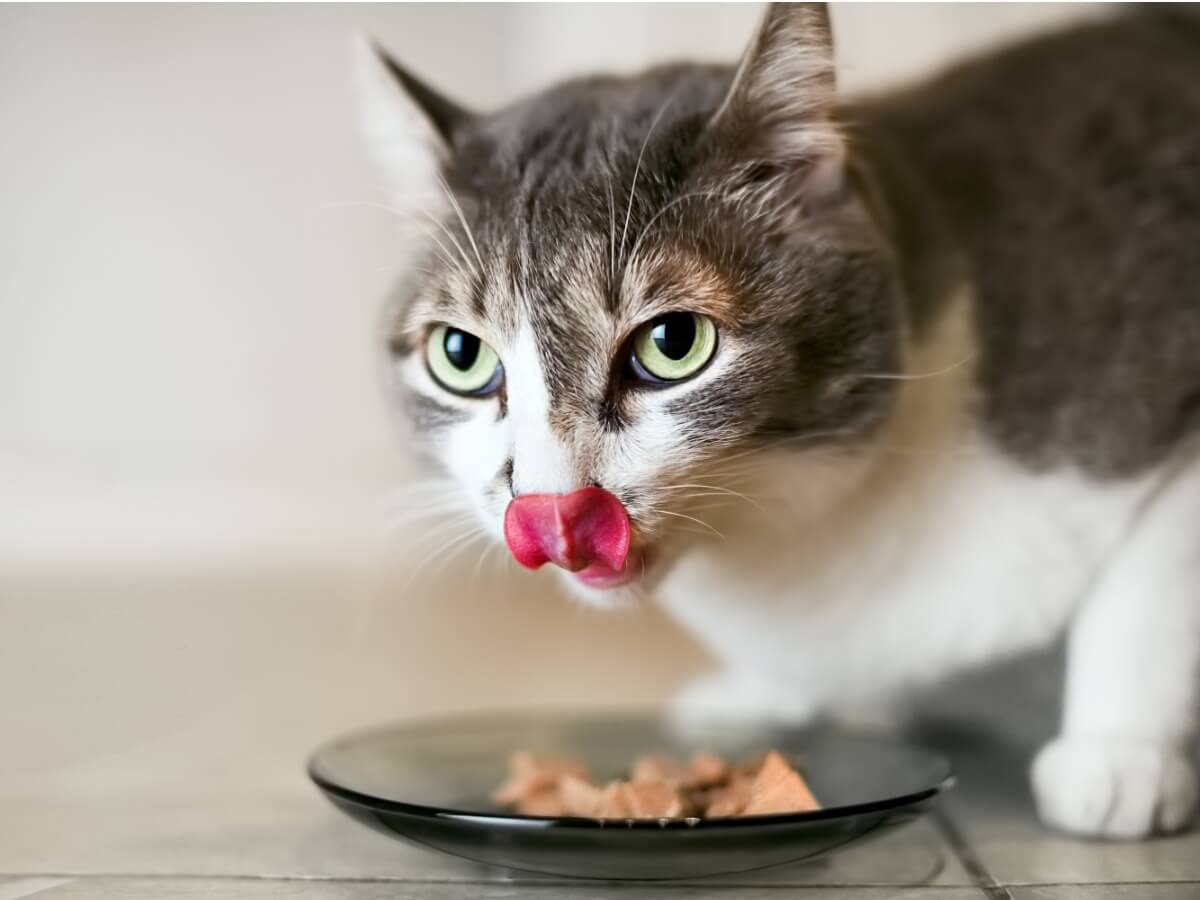What to Do if My Cat Doesn't Want to Eat?

When a cat doesn’t want to eat, it will quite naturally set off a few alarm bells. As with any other animal, a loss of appetite is a worrying sign that, quite rightly, gets an owner’s attention and usually ends up in a visit to the veterinarian.
However, you may know the reasons why your pet is refusing to eat and it may be in your power to do something about it. That’s why we’ve prepared a series of tips and advice that we think will be very useful to you. Take a look!
Why your cat doesn’t want to eat
First and foremost, before force-feeding your feline, you should try to understand why your cat doesn’t want to eat. Of course, if you’ve changed something about their eating routine then you may need to revert to how you did it before. The positioning of the food bowl is one such example. Putting it back where it was may solve the whole problem, but it could also be some physical problem that must be diagnosed by an expert.
Therefore, here are the most common causes why a cat may suddenly not want to eat. Some of them are obvious, but others not so much.
- Change of habits: As mentioned above, small factors such as changing the food or the position of the bowl are relevant for some cats that don’t cope well with changes in routine.
- Organic causes: Diseases, trauma, and bone injuries are often the cause of a cat not wanting to eat. Keep in mind that the animal won’t be feeling well, they’ll be in pain and probably stressed, and so it’s quite normal for it not to want to eat.
- Stress: Domestic cats are very sensitive to changes in their environment and routine, as well as stressful stimuli, such as loud and continuous noises. In the absence of physical symptoms, stress is usually the most common response to not eating.

What should I do if my cat doesn’t want to eat?
If your cat doesn’t want to eat, it’s normal to be concerned. However, you shouldn’t lose your calm. The first thing you should do is go to the veterinarian without fail to rule out organic causes, because if there is one, then it should be treated before force-feeding them.
On the other hand, you shouldn’t wait too long before seeing a vet if your cat refuses to eat. It’s very likely that it has been gradually reducing the amount it eats, before finally stopping eating altogether. The animal shouldn’t go more than a day without eating anything, so don’t hesitate to call the clinic.
How can I encourage my cat to eat if they’re sick?
If you know the reasons why your cat is sick, then you can try to encourage them to eat and recoup energy. The discomfort or pain they feel will make them refuse food, but here are some tips to help you cope with this situation:
- Serve warm food: If you warm up their food a little, either in the microwave or with some hot broth (always without salt), you’ll make their food more appetizing.
- Use wet food: The cans of food marketed for cats are usually useful for other animals to eat, as they’re quite palatable. In the veterinary center they can also recommend you specific food to help treat your cat.
- Place several feeders and share their daily amount among them: In this way, it’ll be easier for them to access the food in places they consider safe.
Always remember that, if even with these tips, you aren’t able to get them to eat, then you’ll need to go back to the vet. Force-feeding or parenteral nutrition may be necessary, and this should be done by professionals.
How to get a stressed cat to eat again
Moving house, building work in the street, even changing the color of the walls can be a stressful event for the most sensitive felines. Therefore, before making any change in the animal’s routine, try to smooth the way for them.
Changes in feed are also problematic for neophobic cats. In this case, the advice is the same – make it as easy as possible by doing it progressively. You can also help them by including some wet food (in moderation) to make the new food more palatable.
Even so, you may have a hard time getting your cat to return to its usual diet. Here are some additional tips:
- Use feline pheromones: If you have to move house, for example, your feline’s routine will be radically modified. In these cases, your veterinarian may recommend the use of synthetic pheromones to help them feel at home.
- Place several food and water bowls around the house: If the problem is the location of its objects, the cat will be able to choose which places it likes best. Once they select them, remove the rest of the objects.
- Maintain a relaxed environment: No one likes to live surrounded by stressful stimuli. Live as calmly as possible, making the most of light and dark cycles, and avoiding loud noises and smells. Remember that your feline’s senses are more sensitive than yours.

Ultimately, a cat that won’t eat requires a diagnosis, either physical or mental. There’s a lot of advice these professionals will give you (even more than what you find here), so don’t hesitate to go and see them. You’re the one who knows your feline friend the best, and so trust your intuition if you detect that something is wrong with their health.
All cited sources were thoroughly reviewed by our team to ensure their quality, reliability, currency, and validity. The bibliography of this article was considered reliable and of academic or scientific accuracy.
- Gómez, V. (2007). Manejo terapéutico de la anorexia felina. Argos: Informativo Veterinario, (90), 28-29.
- Tella, S. K., Tavera, F. J. T., & Mayagoitia, A. L. (2001). Lipidosis hepática idiopática felina. Veterinaria México, 32(2), 109-116.
- García-Morato Fernández-Baíllo, C. (2020). Respuestas comportamentales y fisiológicas en situaciones de estrés en el perro y el gato (Doctoral dissertation, Universitat Autònoma de Barcelona).